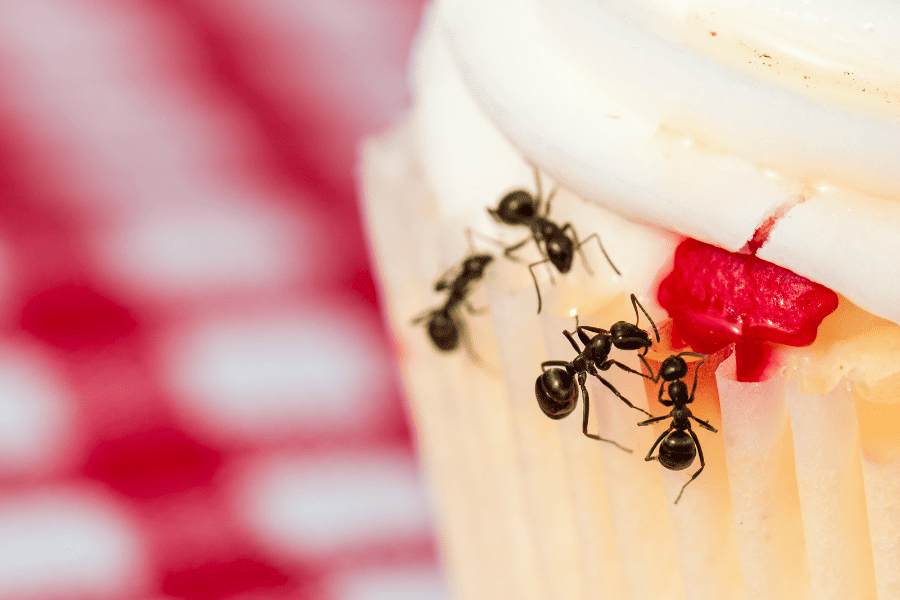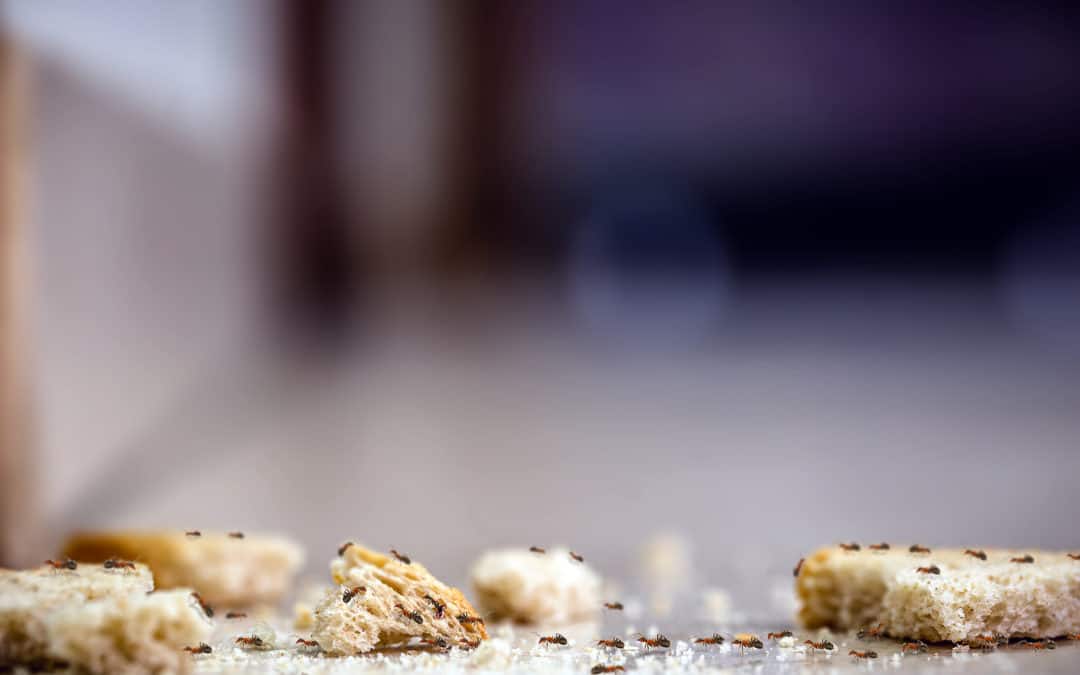READY TO GET STARTED?
REQUEST A FREE ESTIMATE
Fill out the form below or call (336) 226-1448 for a free, no-obligation estimate.

Ants are a common household pest that can quickly become a nuisance if they enter your kitchen or home. Not only are they a nuisance, but they can also contaminate your food and surfaces.
There are many different types of ants, but some of the most common ones found in kitchens include Argentine ants, carpenter ants, and odorous house ants. Argentine ants are small and brown, while carpenter ants are larger and can cause damage to wood structures. Odorous house ants are small and black and emit a strong odor when crushed.
Here are some quick and easy ways to prevent ants from entering your home:
The first step in preventing ants from entering your kitchen is to keep it clean. Ants are attracted to food crumbs and spills, so be sure to wipe down your countertops and sweep or vacuum your floors regularly. Don’t leave dirty dishes in the sink overnight, as this can also attract ants.
Ants can easily access food that is left out in the open, so be sure to store your food properly. Keep your food in airtight containers, and store sweet or sticky foods such as honey and syrup in the refrigerator. Clean up any spills or crumbs immediately to avoid attracting ants.
Ants can enter your home through small cracks and gaps in your walls, floors, and windows. To prevent ants from entering your kitchen, seal any entry points using caulk or weather stripping.
There are several natural remedies that can help deter ants from entering your kitchen. Consider sprinkling cinnamon or cayenne pepper around the perimeter of your kitchen to repel ants. You can also use vinegar or lemon juice to wipe down your countertops and floors, as the acidic scent will deter ants.
If you have tried these do-it-yourself methods and still have an ant infestation in your kitchen, it may be time to call your local professional pest control company. These professionals can identify the source of the infestation and use safe and effective methods to eliminate ants from your home.

Ants are known for being one of the most common home invaders. As soon as they see an opening, they will invade your house and any food they can get their hands on. While they tend to enter homes during the winter, now is the perfect time to start putting preventive measures in the most common areas ants are found – the kitchen and bathroom!
The kitchen is an ideal place for ants to infest. These pests are constantly looking for a water source, and the kitchen is the perfect place to find it. If your kitchen isn’t cleaned frequently and thoroughly, ants will quickly invade. Below are a few ant prevention tips to help keep them out of your kitchen:
Along with the kitchen, your bathroom is highly vulnerable to an ant infestation. A bathroom is an attractive place for ants because they enjoy moisture and dark places. Carpenter ants will build their nest in damp areas, such as behind bathroom tiles or under sinks. To prevent ants from infesting your bathroom, take these preventative measures:
If you have noticed an invasion of ants inside of your home, consider calling your local pest control company. Trained service professionals will set you up with a prevention and ant control plan to help prevent these pests during peak ant season.